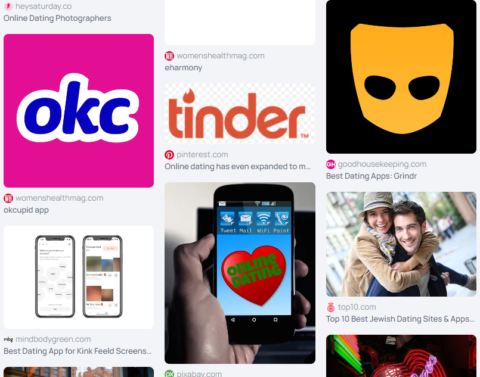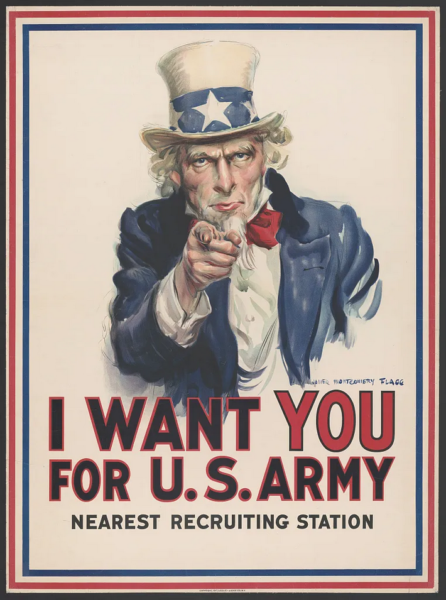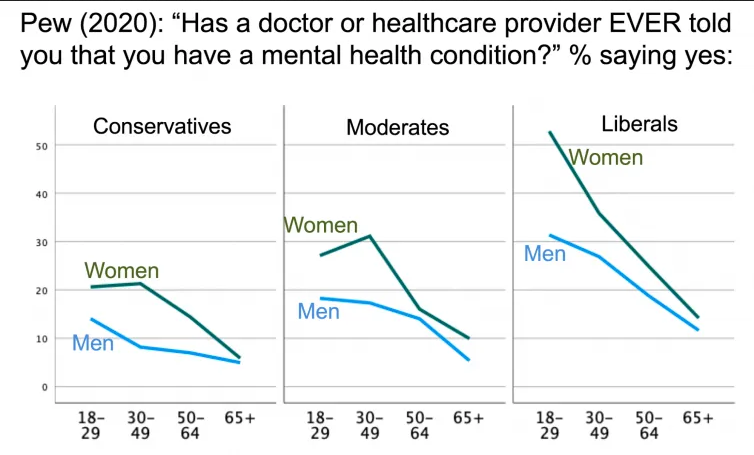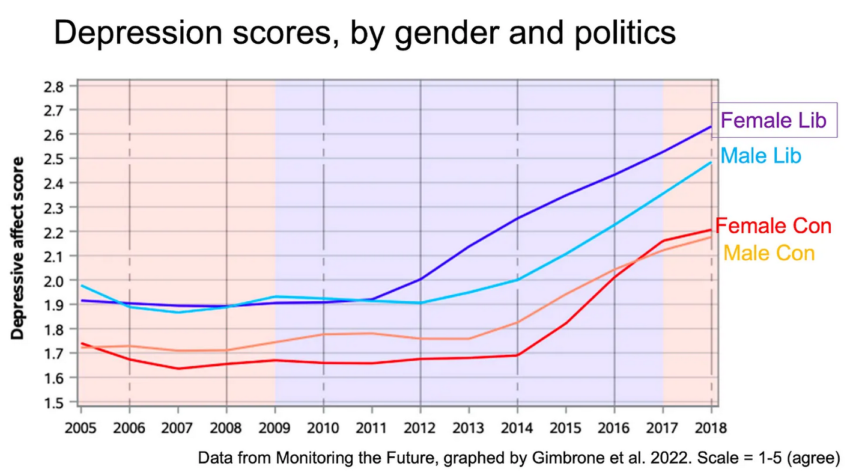I hate to say “it’s a generational thing”, but it’s a generational thing.
Those of us who came of age before Endless September still regard the Internet as a tool. I can do online in two minutes what used to take me two hours in meatspace. For instance, when I first started working full time, I’d have to waste my entire lunch break on the first Monday of every month taking my physical paycheck down to the brick-and-mortar bank, where I’d fill out a bunch of paper to move money around, which I’d hand to a real person who took her sweet goddamn time filing it, and so on. Fight traffic all the way there, fight traffic all the way back, and yeah, that’s a full hour, even when the bank is relatively close. If that bank is closed, or there’s road construction or something, I’d have to spend all Saturday morning doing it, because banks kept bankers’ hours and so I’d better get there and get it done during the three-hour window the brick-and-mortar place was open. And since everyone else on earth was in the same situation …
These days, I’m hard pressed to remember the last time I stepped a real foot inside a physical bank. There’s simply no need. Everything is automatic. Which is convenient, no doubt, but that’s ALL it is: I’ve saved X minutes / hours in my day, which I can use to do other stuff. Other stuff like “see my friends” or “take a walk” or “read a book”. You know, real person stuff. I might read the book online; I might check my email if there’s nothing else to do; but there too the Internet is just a boredom-alleviation tool; something conveniently to hand that passes the time when there’s no other easily accessible way to pass the time.
I would find it inconvenient, sometimes extremely so, to throw the Pocket Moloch in the nearest lake, but the thought doesn’t fill me with dread. Oh, the Net’s down? Shrug.
Not so with the younger generations. I have friends I haven’t seen in weeks, months, years, but when we get together again, it’s like we were never apart, because we met in meatspace and have so much real, personal interaction to fall back on. Younger generations have “friends” they’ve never met in the flesh. Not once. Tell me “Hey, you’re not going to be able to see Tim for a few months” and it’s no big thing. I can still call Tim, or write Tim a letter, or just catch up with him when he gets back, to hear all the cool stories he has. Tell the younger folks “Tim is offline” and they freak the fuck out. Tim is inseparable from the Pocket Moloch in a way we oldsters can only dimly grasp.
They would, I’m sadly sure, prefer to interact with Tim entirely digitally. If you haven’t done it yet, try to find some young people hanging out in a group. It’s actually not the easiest thing to do – which should tell you something right there – but if you manage it, you’ll notice that they spend more time texting than they do talking to each other. And here’s the real kicker: Half the time, they’re texting each other. The same people who are physically right there.
That’s a mentality I can’t begin to grasp. I wonder if it can be broken. I’m not optimistic.
Severian, “Friday Mailbag”, Founding Questions, 2023-07-07.
October 8, 2023
September 29, 2023
September 15, 2023
September 3, 2023
July 18, 2023
At some point we moved from “therapy for serious issues” to “it’s totally normal for everyone you know to be in therapy”
In occasional conversations with younger folks (mainly Millennials and GenZ’ers), it’s surprising how often the topic of “therapy” comes up. Everyone I talk to under the age of 40 seems to be in therapy for this or that … when did that change? I’m no iron man (ask any of my friends), but it would never have occurred to me to seek counselling for what appeared to be the ordinary kind of issues that everyone else was dealing with. Friends and acquaintances who did were almost always struggling with some out-of-the-ordinary concern and certainly weren’t eager to discuss the course of their sessions as part of casual chit-chat. Freddie de Boer seems to share some of my discomfort on this topic:
Ladies, is your man engaging in the method of quasi-scientific self-improvement that’s currently mandated by high-status urbanites aged 21-45? If not, run, girl.
Before you go worrying or lecturing over my title here, let me say my personal life has never been better, really. But my total alienation from what I take to be my culture and its various attitudes and assumptions just grows and grows. Every day, it seems, there’s a fresh horror, and nowhere does it smack me in the face more than with mental health.
The above advertisement, which I think premiered in 2022, takes the medical tool of therapy and renders it a bit of dating-market gamesmanship, something bros just have to get on board with in order to hook up with high-value gals. I don’t expect a 30-second advertisement to reflect the reality that therapy is a frequently-adversarial process, that it’s at times uncomfortable by design, that it only works for certain kinds of problems, or that there are times when it can actually exacerbate them. And while I certainly do hold it against them for contributing to the corrosive “everybody should be in therapy” attitude — which is little different from believing that everybody should be on antibiotics — I also know that a for-profit therapy company is going to be pushing that line. (A macro-problem with for-profit medicine lies in the fact that the financial incentive is always to go on treating a medical problem forever without curing it.) What really gets to me is how a therapy company is going out of its way to make therapy appear so trivial, how the characters appear deliberately portrayed as unserious people and therapy so unapologetically represented as just a dating-market football. The commercial is somehow both grandiose about therapy’s purpose and dismissive about therapy’s actual use.
I don’t know how it is that we’ve simultaneously spent so much time validating and honoring people who struggle with their mental health and at the same time made mental health as a topic so frivolous.
I appreciated this conversation about TV therapy from The New Yorker. In it, Inkoo Kang says “I feel like there’s this idea that therapy is easy. And then you actually go to therapy, and you’re, like, ‘Oh, this is actually the worst’. That particular realization is very rarely dramatized.” I would argue that if therapy never feels like the worst, then you probably aren’t getting as much as you could out of the therapeutic process. Part of what makes finding and sticking with a therapist so difficult is that it’s close to impossible to divide your sense of what you want from a therapist from a broader understanding of what you need from a therapist. Are you sure you don’t like your current therapist because you’re “just not vibing with them”? Are you sure you want to fire your therapist because they seem “toxic”? Or is it because you signed up for therapy expecting it to be a constant exercise in validating everything you think and say and instead you’re one of the lucky few with a therapist who actually does their job and sometimes calls you on your bullshit? Of course, some therapists really aren’t very good, or more commonly, you can be a receptive patient and the therapist can be a competent practitioner but you have communication styles that just don’t gel. These things can be very difficult to parse on your own, which is why I always tell people to give it more time than they think they need. But either way, nothing is served by this effort to make therapy just another elite checklist item that shows you’re an enlightened person, except maybe Betterhelp’s share price.
April 26, 2023
Lowered standards, lowered trust, and the US military
In The Free Press, Rob Henderson considers the changes in how the US military recruits for the various branches now that patriotism is a word only used ironically in scare quotes:
The military can’t meet its recruitment goals. Too many young people are too fat, do drugs, or have a criminal record. This has been a problem for years. It’s now approaching a crisis.
To address the recruitment shortfall, the military has reduced previous standards for entry, allowing men to be 6 percent fatter (and women, 8 percent). It is also trying hard to lure recruits by appealing to their self-interest, with a video of individual soldiers speaking to the camera, encouraging candidates to find “the power to discover, to redefine yourself, to improve yourself, to challenge yourself” and “to realize there’s more in you than you ever knew that you could do”. Recruits can also win up to $50,000 bonus money for enlisting.
But this strategy carries a big risk: young adults tend to be less loyal to organizations with lowered standards that target their personal motives. Study after study has shown as much.
As the University of Toronto psychologist Paul Bloom has written, “If entering the group required a thumbs-up and a five-dollar entry fee, anyone could do it; it wouldn’t filter the dedicated from the slackers. But choosing to go through something humiliating or painful or disfiguring is an excellent costly signal, because only the truly devoted would want to do it.”
In other words, by lowering the barrier to entry, the military has opened itself up to more recruits like Jack Teixeira.
No one knows exactly why Teixeira, 21, the Massachusetts Air National Guard airman, allegedly leaked classified information about the CIA, exposing our intelligence on Russia, South Korea, Israel, and Ukraine. He is now cooling his heels in prison, charged with violating the Espionage Act for spilling state secrets on the gaming platform Discord.
The Tucker Carlson right and the Glenn Greenwald left have come to a similar conclusion: that Teixeira is a kind of folk hero. Greenwald recently stated that, much like Edward Snowden, Teixeira aimed to “undermine the agenda of these [intelligence] agencies and prove to the American people what the truth is”. And it’s hard to imagine any Republican ten years ago making the argument that Marjorie Taylor Greene did — that the “Biden regime” considers Teixeira an enemy of the state because he is “white, male, [C]hristian, and antiwar”. Regardless of their specific reasons, this bipartisan agreement that Teixeira should be applauded is emblematic of a broader lack of confidence in the American government and our military.
In recent years, support for the military has plummeted more than in any other American institution — with 45 percent of Americans voicing trust in the armed forces in 2021 versus 70 percent in 2018. This decline is almost entirely due to younger Americans: among those 18 to 44, confidence in all the branches of the military is in the low- to mid-40 percent range; for those 45 and up, it’s in the 80 percent range, according to a 2022 YouGov survey.
This decline in support for the military coincides with declining patriotism among young Americans: 40 percent of Gen Zers (those born from 1997 to 2012) believe the Founding Fathers are more accurately characterized as villains, not heroes, according to psychologist Jean Twenge’s forthcoming book, Generations.
March 14, 2023
February 18, 2023
February 6, 2023
January 18, 2023
Our western gerontocracy
In The Free Press, Katherine Boyle outlines the death-grip that elderly boomers retain on so many of the levers of our shared society, from government to business to (of course) the legacy media:
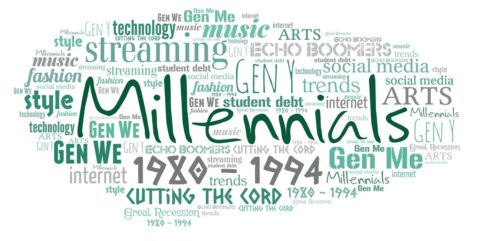
“Millennials” by EpicTop10.com is licensed under CC BY 2.0
The tens of millions of Americans that are, like me, millennials or members of the generation just younger, Gen Z, have been treated as hapless children our entire lives. We have been coded as “young” in business, in politics, and in culture. All of which is why we shouldn’t be surprised that millennials are the most childless and least home-owning generation in modern American history. One can’t play house with a spouse or have their own children when they’ve moved back into mom’s, as 17 percent of millennials have.
Aside from the technology sector — which prizes outliers, disagreeableness, creativity and encourages people in their twenties to take on the founder title and to build things that they own — most other sectors of American life are geriatric.
The question is why.
There are many theories — and many would-be culprits. Some believe it’s the fault of the Boomers, who have relentlessly coddled their children, perhaps subconsciously, because they don’t want to pass the baton. Others put the blame on the young, who are either too lazy, too demoralized or too neurotic to have beaten down the doors of power to demand their turn.
Then again, life expectancy is growing among the healthy and elite in industrialized nations, so perhaps this is all just progress and 70 is the new 40. But one can take little solace in the growing life expectancy of the last 200 years when comparing ourselves to more productive generations that didn’t waste decades on extended adolescence.
Every Independence Day, we’re reminded that on July 4, 1776, the most famous founders of this country were in their early 20s (Alexander Hamilton, Aaron Burr) and early 30s (Thomas Jefferson). Even grandfatherly George Washington was a mere 44. These days much of our political class, from Bill Clinton (elected president 30 years ago at age 46) to financial leaders like Warren Buffett (92), and Bill Gates (67) who launched Microsoft 48 years ago, are still dominant three and four decades after seizing the reins of power. CEOs of companies listed on the S&P 500 are getting older and staying in their jobs longer, with the average CEO now 58 years old and staying in his or her role 10.8 years versus 7.2 a decade ago. And our political culture looks even more gray: Twenty-five percent of Congress is now over the age of 70 giving us the oldest Congress of any in American history.
The Boomer ascendancy in America and industrialized nations has left us with a global gerontocracy and a languishing generation waiting in the wings. Not only does extended adolescence — what psychologist Erik Erikson first referred to as a “psychosocial moratorium” or the interim years between childhood and adulthood — affect the public life of younger generations, but their private lives as well.
In 1990, the average age of first marriage in the U.S. was 23 for women and 26 for men, up from 20 for women and 22 for men in 1960. By 2021, that number had risen to 28.6 years for women and 30.4 years for men, according to the Census Bureau, with 44 percent of U.S. women between the ages of 25 and 44 expected to be single in 2030. Delayed adulthood has had disastrous consequences for procreation in industrialized nations and is at the root of declining fertility and all-but-certain population collapse in dozens of countries, many of which expect the halving of their populations by the end of the century.
“Twenty-five is the new 18,” said The Scientific American in 2017, pointing to research that extended adolescence is a byproduct of affluence and progress in society. Which is why the finiteness of a mid-thirties half-life is such a surprise to those in their 20s and 30s. It runs counter to every meme and piece of advice young people receive about building a career, a family, a company and in turn, a country.
The prevailing wisdom in Western nations is that the ages of 18-29 are a time for extreme exploration — the collecting of memories, friends, partners and most importantly, self-identity. A full twelve years of you! Self-discovery aided by platforms built for broadcasting photos of artisanal cocktails and brunch. And with no expectation for leadership because there will be time for that, a generation can absolve oneself of responsibility for their actions. (Tragically, that was never true for half of the population, which is why we have a generation of extremely accomplished older women, who weren’t really aware how difficult it is to become pregnant at 39.)
January 15, 2023
“Zoomers and Millennials are further to the left to begin with and, more critically, don’t seem to be moving rightward as they age”
Andrew Sullivan on the significant leftward orientation of younger Millennials and Gen Z’ers which does not track to historical models of political belief:

“Millennials” by EpicTop10.com is licensed under CC BY 2.0
It’s dawning on many on the political center and right that the current younger generation in America is not like previous younger generations. They’re immaturing with age. Zoomers and Millennials are further to the left to begin with and, more critically, don’t seem to be moving rightward as they age. A recent, viral piece in the FT added a new spark to the conversation, arguing that if Millennials matured like previous generations, then by the age of 35, they
should be around five points less conservative than the national average, and can be relied upon to gradually become more conservative. In fact, they’re more like 15 points less conservative, and in both Britain and the US are by far the least conservative 35-year-olds in recorded history … millennials have developed different values to previous generations, shaped by experiences unique to them, and they do not feel conservatives share these.
And the key experiences, it seems to me, are: entering the job market in the wake of the financial crisis; being poorer than your parents when they were the same age; lacking access to affordable housing and childcare; growing up in a far more multiracial and multicultural world than anyone before them; seeing gay equality come to marriage and the military; experiencing the first black president and nearly the first woman; and the psychological and cultural impact of Trump and Brexit.
These are all 21st century phenomena — and simply not experienced by the generations immediately before them. Socially and culturally more diverse, the young are also understandably down on the catastrophic success of neoliberal economics. So of course they are going to be different. When it was their turn on the wealth escalator, it essentially stopped.
Sometimes we forget that these deep factors are what are most seriously in play. And the biggest mistake many of us on the center or right tend to make is assuming that all of the young’s stickier leftiness — especially the most irritating varieties of it — are entirely a function of woke brainwashing, and not related to genuinely unique challenges. A lot is — the indoctrination is real and relentless — but a lot isn’t. And it’s vital to distinguish the two.
The left’s advantage is that they have directly addressed this generation’s challenges, and the right simply hasn’t. The woke, however misguided, are addressing the inevitable cultural and social challenges of a majority-minority generation; and the socialists have long been addressing the soaring inequality that neoliberalism has created. Meanwhile, the right has too often ducked these substantive issues or rested on cheap culture-war populism as a diversionary response. I don’t believe that the young are inherently as left as they currently are. It’s just that the right hasn’t offered them an appealing enough alternative that is actually relevant to them.
That doesn’t mean cringe pandering. It means smarter policies. Some obvious options: encourage much more house-building with YIMBY-style deregulation; expand access to childcare for young, struggling families; tout entrepreneurial and scientific innovation to tackle climate change; expand maternity and paternity leave; redistribute wealth from the super-rich to working Americans to stabilize society and prevent capitalism from undoing itself; and, above all, celebrate a diverse society — and the unique individuals and interactions that make it so dynamic and life-giving.
December 23, 2022
QotD: Wokeness as a lifestyle
The quick and dirty version is: Since the goddamn Boomers will never, ever retire — they’ll keep patting themselves on the back for Sticking It to the Man until they’re lowered into their tie-dyed, patchouli-reeking coffins, even though they’re all hedge fund managers and live in McMansions — the subsequent generations had to find a new area in which to compete for social status. Thus lifestyle striving for Gen X, and persona striving for the Millennials.
For Gen X, think of my personal candidate for “everything that’s wrong with the 90s, all in one place,” the 1994 movie Reality Bites. Don’t rent it unless you’re current on your blood pressure meds. It’s four of the 1990s’ most insufferable people (Winona Ryder, Ethan Hawke, Ben Stiller, Janeane Garofalo) quipping about being slackers. Well, except Stiller (also the director), who plays the grasping, uptight, sold-his-soul-to-The-Man yuppie foil to the other three. Stiller is the Gen Xer who chose to compete in the oversaturated career arena; he’s cartoonishly evil. The rest of them hang out in coffee houses, polishing their image. They’re lifestyle competitors.
For Millennials, and whatever we’re calling the upcoming generation (“The Lobotomized Snowflake Posse” is my suggestion, brevity be damned), well, just look at social media. Even lounging-around-Starbucks lifestyle competition is out of reach for people who went $100K in the hole for a Gender Studies degree. The only currency they’ve got is effort — hey, didn’t Karl Marx say something about that? — so Twitter becomes their full time job. Xzhe with the most followers wins.
Severian, “Why So #Woke?”, Rotten Chestnuts, 2020-01-07.


